Article views: 517
If you’re from Europe, you may not experience that initial sense of delightful confusion when you arrive in Canada as you might in other countries. In fact, the landscape may feel oddly familiar right away. After all, anyone who’s seen a Hollywood film recognizes North America’s stereotypical scenery: uniform neighborhoods filled with strip malls, fast-food restaurants, wide roads, big cars, and the iconic yellow school buses. While Hollywood may exaggerate many things, it accurately depicts the everyday sights.
Canada’s unique charm doesn’t hit you immediately; it slowly unfolds over time. You might need to experience a couple of snowstorms, have some casual conversations, or navigate through daily life before you start questioning which planet you’ve landed on.
Dive deeper into the cultural nuances, and you’ll find plenty of intriguing differences—like the surprising absence of sidewalks, the ability to engage in casual chats with complete strangers, and even the peculiar way milk is sold here.
If you share my fascination with cultural distinctions, taking your time to explore these quirky elements is well worth it.
I’ve been exploring Canadian culture for the past twenty years, and I still find myself chuckling at those moments that make you think, “Only in Canada.”
For example, I gathered some amusing signs just last week.
Winter Planning… in September
Yard signs are inexpensive and widely used marketing tools across most Canadian neighborhoods. If they aren’t promoting a political candidate or commemorating a family member’s graduation, you can bet they are advertising lawn and snow services.
These businesses provide lawn care during spring and summer and snow removal in winter. While many people overlook lawn aeration, signing up for snow removal services is often a top priority as shoveling a driveway burdened with heavy, wet snow is far from enjoyable.
However, deciphering the fine print in snow removal contracts isn’t a walk in the park either. For instance, a “snowfall” is defined as having 5 centimeters or more, snowdrifts are not included, and the contract only covers up to 250 centimeters of snow from December to April.
And of course, the snow removal company you hired back in September might not show up when winter starts in December—it’s a common occurrence. Yes, snowplowing scams do exist in Canada.
Snowplow Road Signs
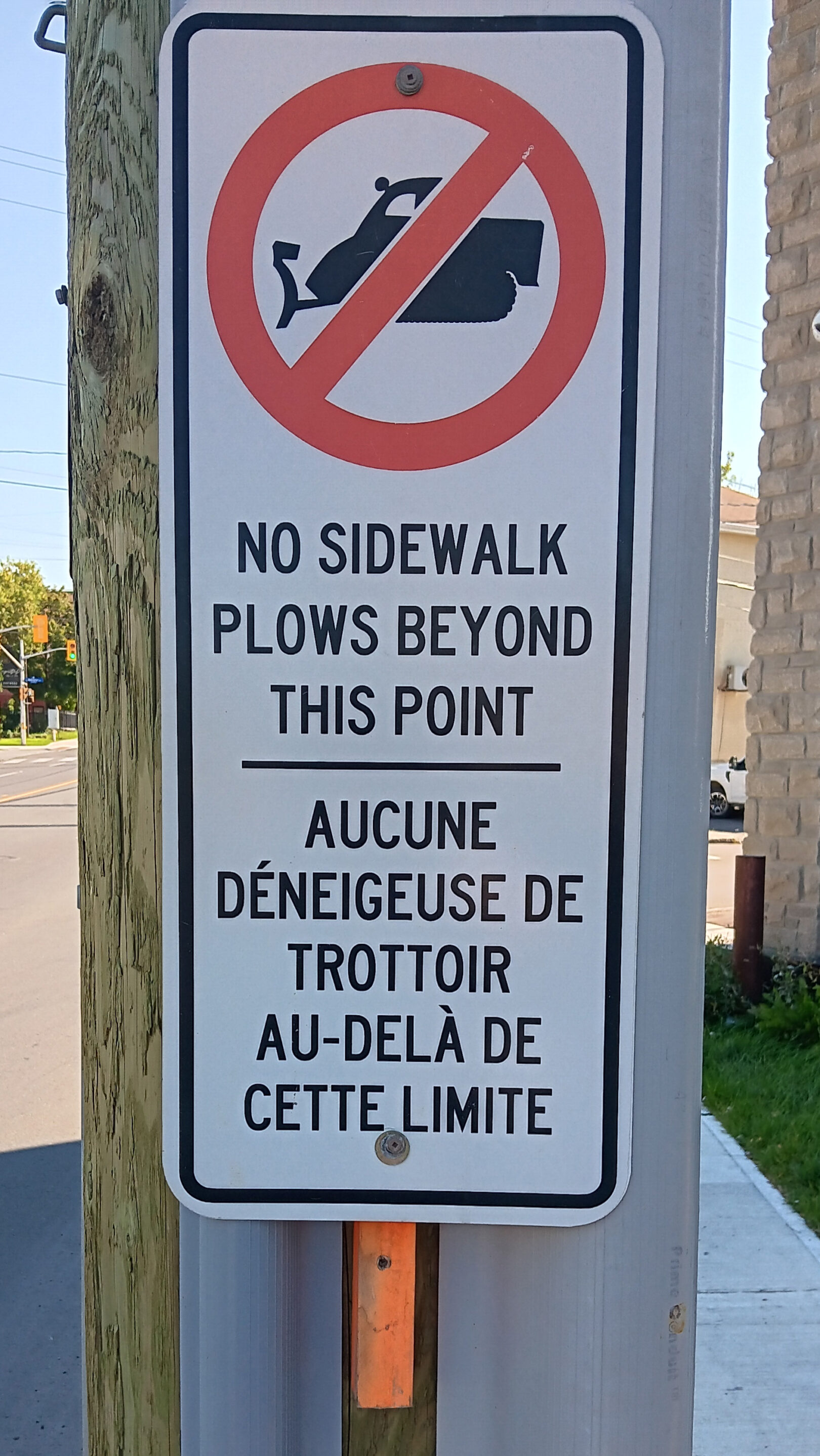
Don’t plow the sidewalk when it’s too narrow!
Apparently, we needed a permanent reminder in the form of a road sign.
Additional Winter Tips
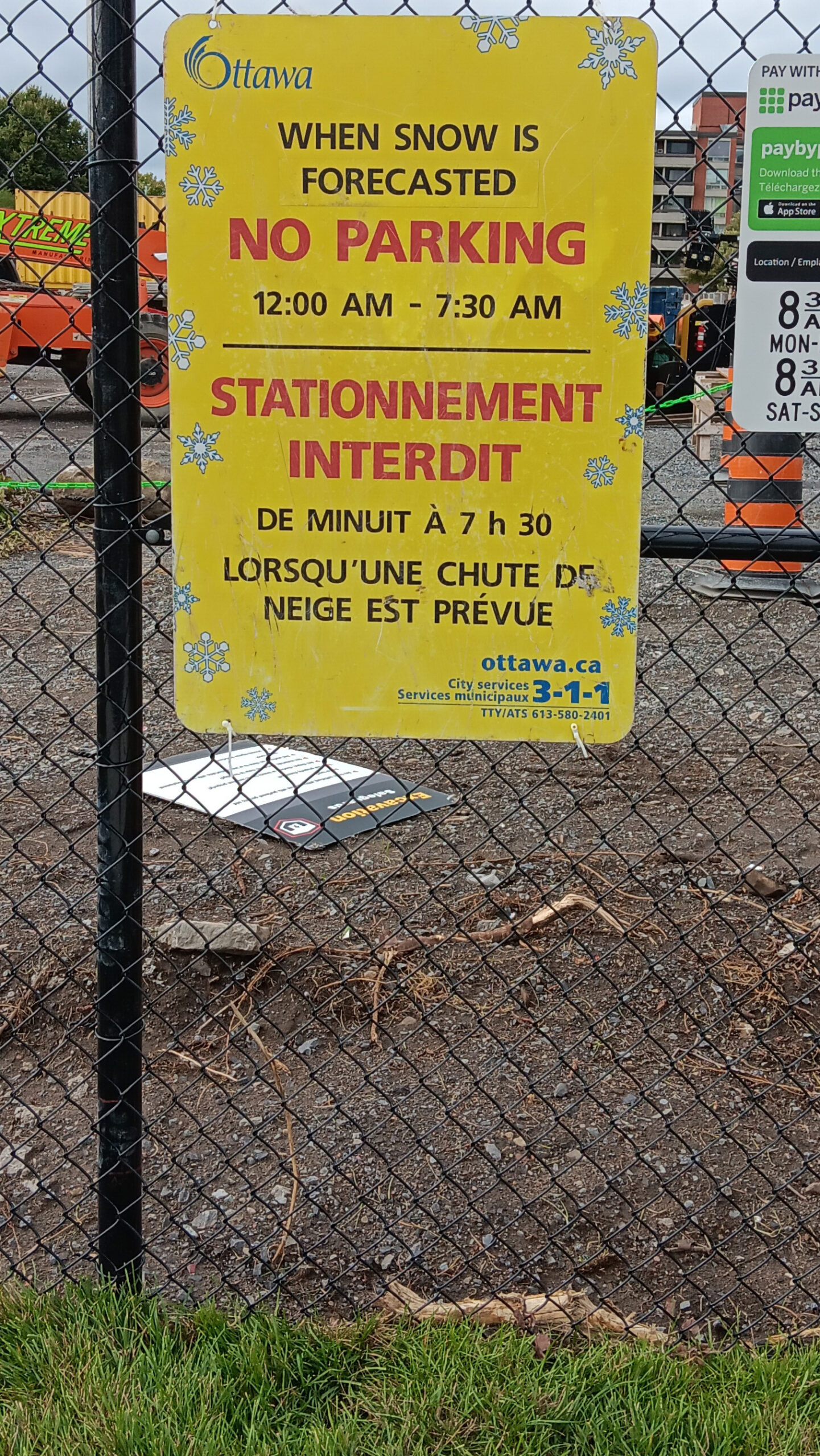
Canada spends a significant part of the year battling snow—plowing, clearing, shoveling, and transporting it to designated snow dumps, because yes, snow dumps do exist in Canada.
There are days when managing “winter operations” takes precedence throughout the city. It’s best to check the weather and avoid parking outside when snow is predicted, as winter parking bans are enforced. This makes perfect sense; not only is it challenging to clear snow and ice from vehicles, but parked cars can obstruct plowing efforts on roads and streets.
Land Acknowledgements
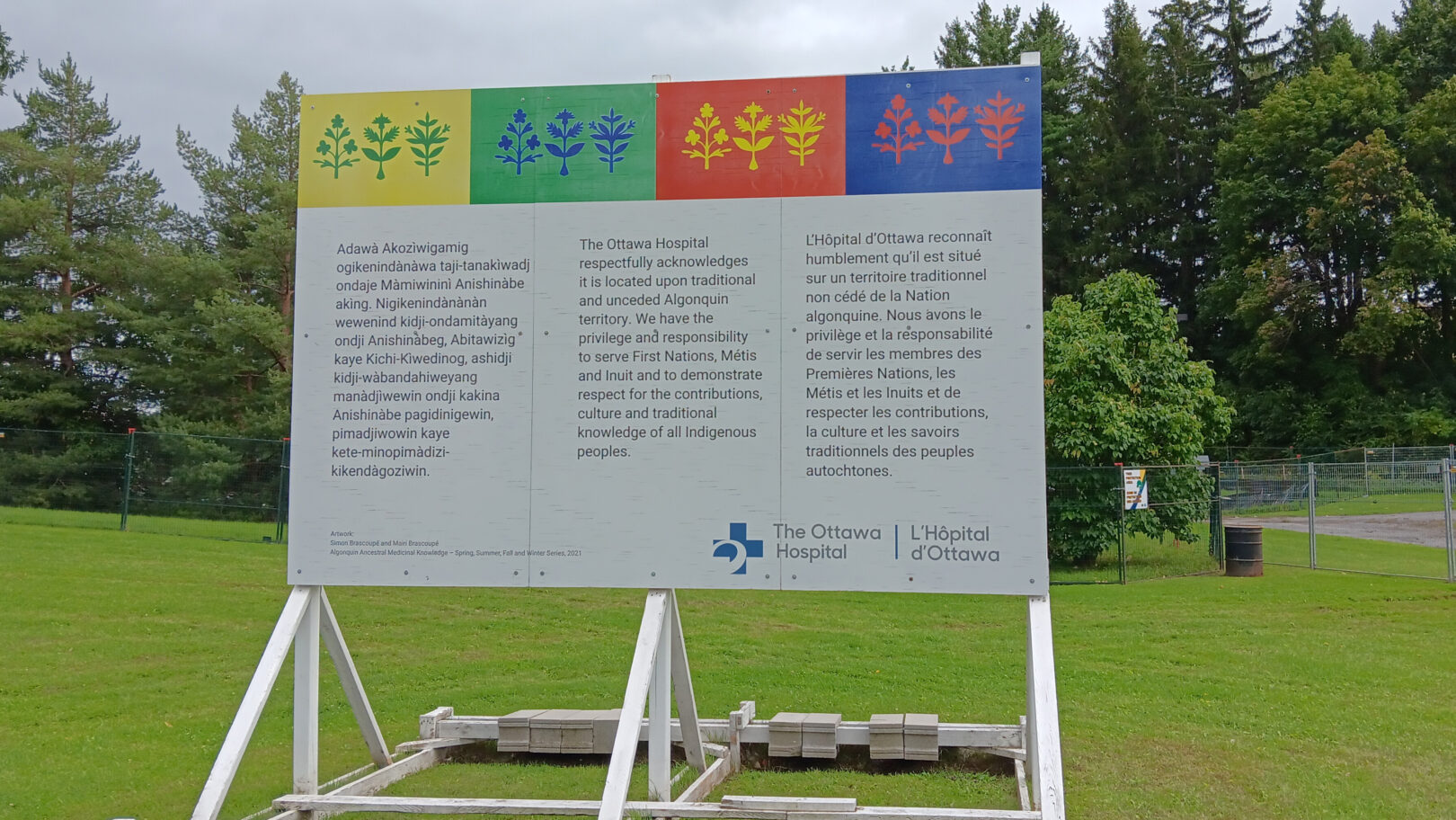
Land acknowledgements serve as formal declarations that recognize Indigenous peoples and their land rights. They are a way to honor the First Nations, Métis, and Inuit communities, both in history and today.
Historically, approximately 50 million Indigenous people lived in North America before European colonization, enduring decades of violence, exploitation, and displacement from their lands. Once you grasp the full impact of colonialism in Canada, you can’t help but see its lingering effects, beyond just viewing it as “the way things were” in the past.
Words cannot fully capture the colonial genocide faced by Indigenous peoples. Currently, “the Government of Canada is committed to achieving reconciliation with Indigenous peoples through a renewed, nation-to-nation, government-to-government, and Inuit-Crown relationship that is based on recognition of rights, respect, cooperation, and partnership as the foundation for transformative change.”
While we can hope for meaningful progress, it’s evident that it will require more than just official statements and land acknowledgements.
Local “Delicacies”
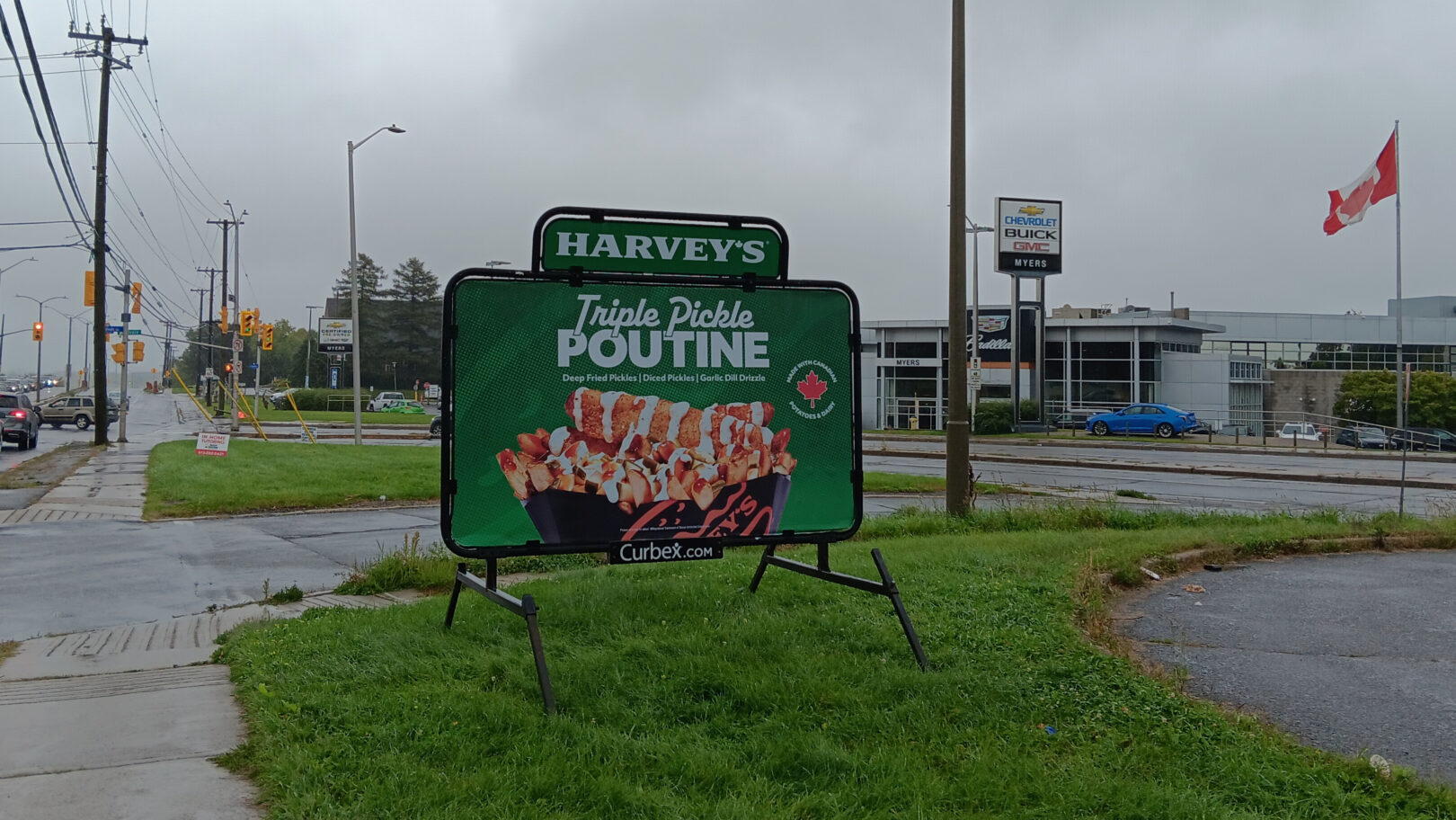
No, I’ve never felt compelled to try poutine. And no, I likely won’t be tasting anything like deep-fried pickles paired with poutine. While I don’t dislike pickles or fries, that combination just doesn’t sit right with me.
Don’t Worry About Coyotes
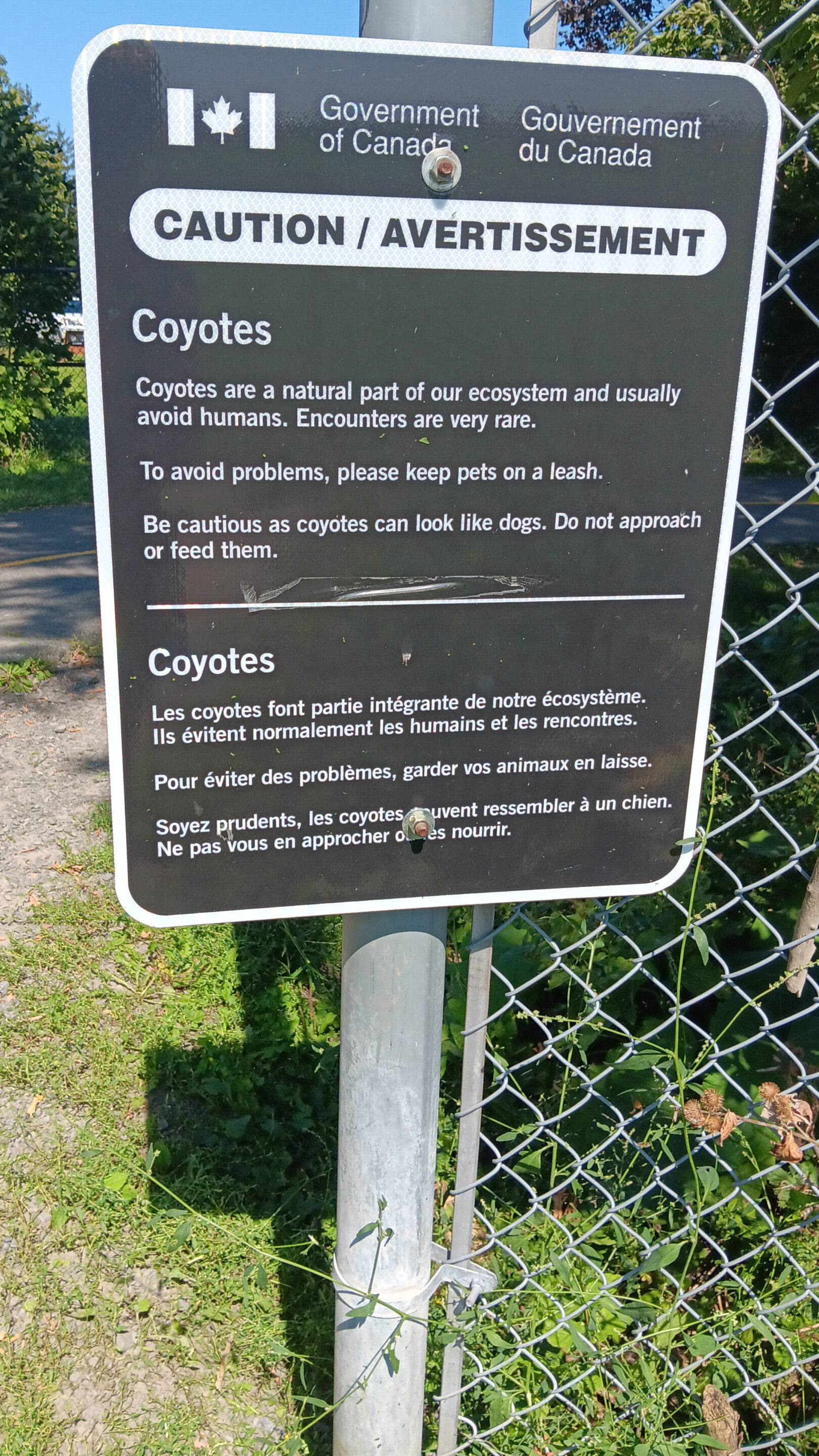
I reside near the Experimental Farm, and these signs are everywhere. We do have a few coyotes in the area—I spotted one crossing the street late at night last week—but they don’t seem interested in the many rabbits, raccoons, or squirrels.
Perhaps they’re more inclined towards poutine instead.
(Legal) Cannabis Store Ads
Mark recently confessed that, before the somewhat informative and slightly confusing “drugs and your health” unit in Grade 6, he thought “drugs” were actually “spring rolls,” just misspelled.
Now, I can’t help but picture the city of Ottawa indulging in smoking spring rolls, and it makes me laugh as if I were high (which I’m not).
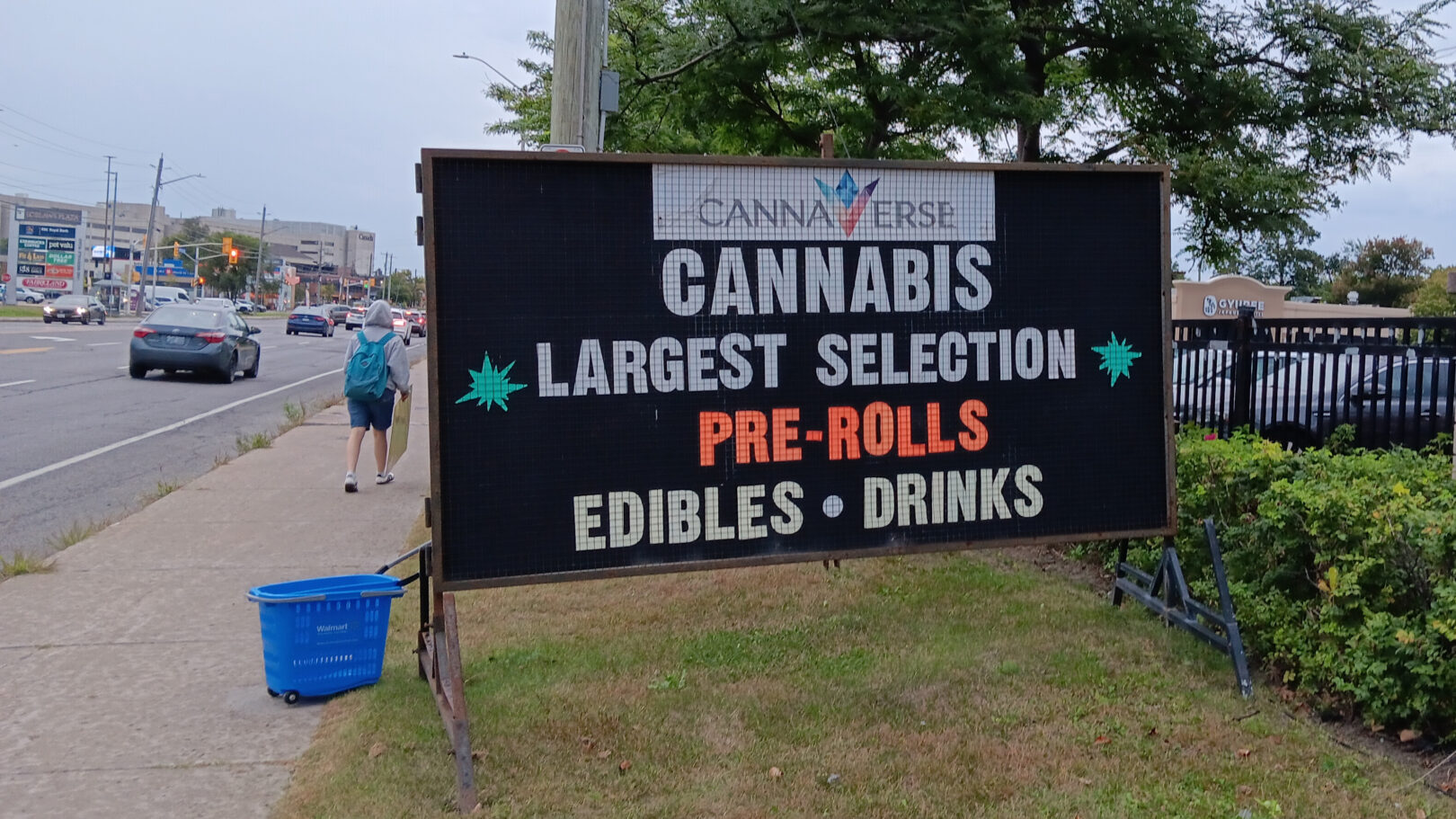
Do you have any amusing or noteworthy signs in your area?
Visited 128 times, 2 visit(s) today



